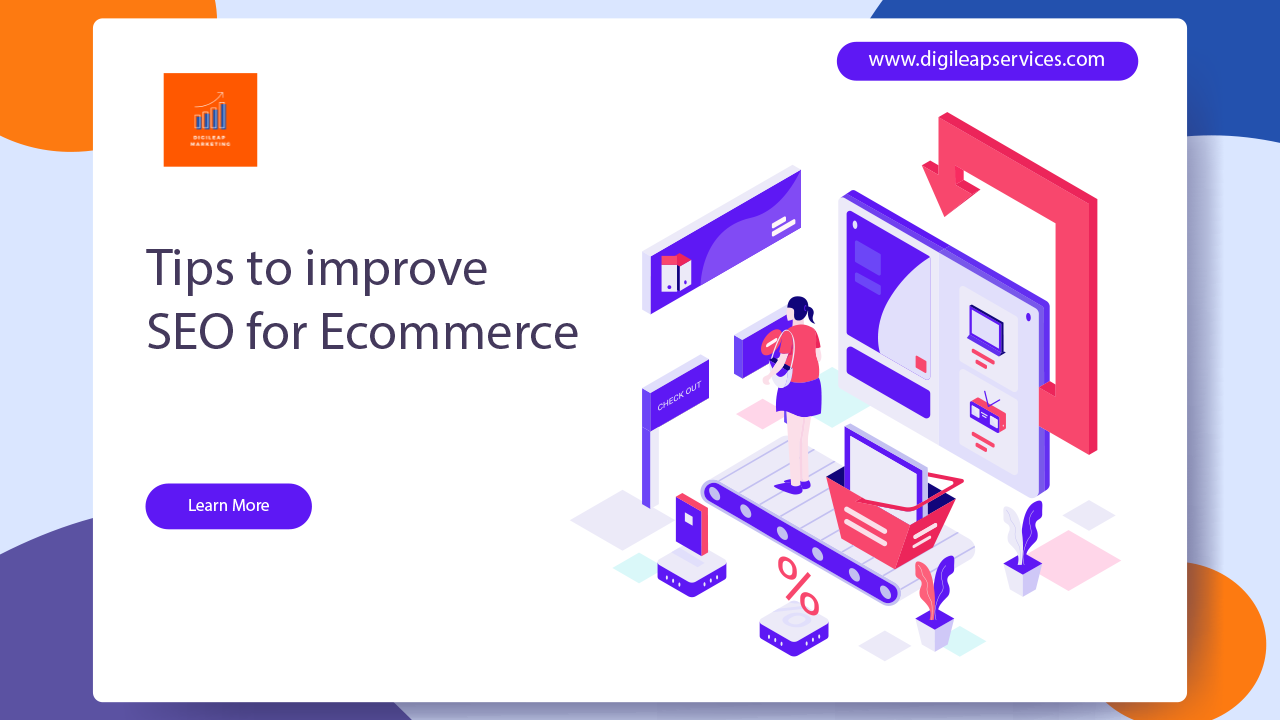Tips to improve SEO for e-commerce websites
Changes in search engine features and frequent algorithm changes are making eCommerce businessmen unsure of where to begin when it comes to an SEO for eCommerce website. What are the ways that can be used to tackle the problem of maintaining and improving SEO for eCommerce websites? This article explores this fundamental question facing e-retailers. Here are a few ideas to enable the same:
The keyword search must consider the buyers’ intent:
Aside from focusing on the most popular keywords within the industry, organizations should also consider buyers’ intent during the search. Buyer intent is the intention behind a particular search query. There are many ways to determine the intent behind the keyword search. A keyword search tool like Google’s keyword planner can be used to generate new ideas for content and keywords in line with what the users are searching for. This is an important SEO strategy for eCommerce websites.
Reduce load time:
A lower load time is not just essential for a seamless user experience but also significantly impacts the search rankings. A site may be too slow for many reasons- too much content, large images, malfunctioning the web host, etc. Using fewer compressed images, avoiding clutter on the webpage and limiting HTTP requests are some ways to help boost SEO for eCommerce websites. There may again be many ways to accomplish this, but image compression can make a quick impact.
Also go through our blog on social media tools for marketing to understand the algorithm and to excel.
Optimization for mobile and portable devices:
A site that is not optimized for mobile could hit the SEO rankings majorly. User habits continue to evolve at a fast speed, and one of the key requirements of today’s audience is that webpages should load seamlessly on mobile phones. There are many tools available to test and optimize the content for mobile and achieve the desired SEO strategy for eCommerce.
Also, read our blogs on marketing strategy for applications to find the best strategy.
Optimized content:
ECommerce has both on-page and off-page SEO that can be used to attract and acquire new customers and boost conversions. Focusing on the most instrumental areas of eCommerce is necessary. These are product descriptions, images, reviews etc. Web developers need to ask what are the most important elements on a page, how can their visibility be maximized, and how can the product descriptions be more effective.
A few of the SEO best practices for eCommerce are adding high-quality and unique images, adding CTAs, adding testimonials and optimized keyword research through an appropriate keyword search tools.
Adding customer reviews:
Reviews and feedback are vital for achieving success in SEO for e-commerce websites. Reviews help consumers decide whether to buy a particular product or do business with an online store and also help you build trust with consumers and improve conversion rates. Encouraging customers to leave reviews and feedback by sending automated messages whenever they make a purchase is one effective way of improving SEO for the website.
Also, read our blog on Types of online advertising platforms to strategize the best.
Using a simple URL:
A simple URL structure increases the SEO rankings of a site as it provides relevant data for the search engines. Using keywords in the site URL is important as they denote what the website is about. Search engines scan the URL, and the page ranking is affected in the SERPs. URLs should be as short and easy to understand as possible.
Also, read the hacks for Instagram growth for better reach in Instagram.
Avoiding duplicity in pages and content:
Many online retailers fall into the trap of duplicating the product descriptions and images on their websites. Using different product descriptions, adding unique keywords on other pages of the website and adding a suffix to the URL are ways of reducing the duplicate content on a site and thereby improving SEO on the webpage.
Improving the content:
Written content plays a huge role in affecting SEO rankings. Uploading high-quality content increases traffic to the website, boosts the ranking, and enhances the brand’s reputation among the customer base. Articles that answer FAQs, updates on new products, testimonials, video demonstrations and how-to guides are common ways of improving SEO for eCommerce websites.
Also you can read about marketing strategies for twitter to understand the algorithm of twitter.
Resolving site errors:
The website should be kept clean by periodically monitoring the Google Search Console. Site errors may include broken links or other navigation errors which disrupt the user experience. Resolving them affects the SEO rankings for any eCommerce website.
Making social media sharing easy:
Sharing the content over social media improves brand exposure and allows people to get acquainted with a particular business. Social media mentions affect SEO by increasing visibility, expanding reach, enhancing recognition, and increasing backlinks. All of these combined together affect the SEO strategy of any website.
Also read our blog on how to increase followers on Twitter to optimize your Twitter account.
Conclusion
SEO is a very critical aspect of inbound marketing methodology. It can go a long way in impacting the webpage rankings of a brand. The tips explained above can help improve SEO and attract a quality audience for a brand.
If you have any questions or concerns regarding SEO or want to improve your SEO for eCommerce websites, contact us at growth@digileapservices.com, and our team will get in touch with you.
Visit our blogs on digital marketing to read more blogs.












